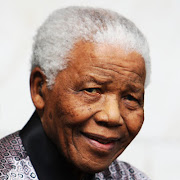 You've probably heard about Nelson Mandela's new book - Conversations with Myself - that was launched on 12 October 2010. If you've not read it and shelved it in your personal library yet, make sure you do. Nelson Mandela, former South African President, no doubt, has such an incredible life story that would never fail to inspire you, your children and your children's children to seek progress by promoting social justice and equality for all.
You've probably heard about Nelson Mandela's new book - Conversations with Myself - that was launched on 12 October 2010. If you've not read it and shelved it in your personal library yet, make sure you do. Nelson Mandela, former South African President, no doubt, has such an incredible life story that would never fail to inspire you, your children and your children's children to seek progress by promoting social justice and equality for all.Many people have already read or listened to Nelson Mandela's incredible life story uncountable times from a variety of sources, but a recent report by Bob Simon, contributor for "60 Minutes", about Madiba and the new book is worth watching. The report captures the life of [arguably] "the most admired human being alive." WATCH...
The new book offers "unique access" to the life and thoughts of the freedom fighter. It reveals the "private man behind the public figure," and guess what - the foreword is written by U.S. President Barack Obama.
Nelson Mandela's Conversations with Myself
Read more about the book on the official website of the Nelson Mandela Foundation.


















